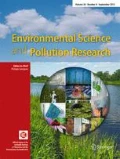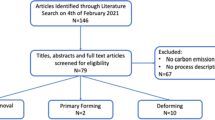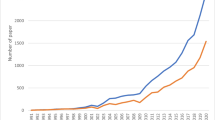Abstract
Textile industry is an old and effective industry in Iran. However, due to its age and high energy consumption, this industry has low profitability and entrepreneurship. One of the most important problems of the weaving industry is the issue of waste regarding manpower, materials, machinery, and especially energy consumption. Another problem is environmental pollution. In this paper, using a multiple decision-making model for ranking and selecting criteria and sub-criteria, which is presented using the step-wise weight assessment ratio analysis (SWARA) and also by examining several industrial plants on weaving, the final ranking was performed using the fuzzy COPRAS method. According to the final result and using the opinions of experts and reviewing the studied cases, the environmental criterion was more important than other criteria, and also according to the existing sub-criteria, the amount of CO2 production and pH in the process of completion and washing and the types of pollution in the effluent and sewage were more important than other sub-criteria. Also, among the alternatives, company 5 is evaluated as the best alternative.














Similar content being viewed by others
Data availability
All data generated or analyzed during this study are included in this published article and its supplementary information files.
References
Abreu MF, Alves AC, Moreira F (2017) Lean-Green models for eco-efficient and sustainable production. Energy 137: 846-853
Annamalai S, Kumar H, Bagathsingh N (2020). Analysis of lean manufacturing layout in a textile industry. Mater Today: Proceedings
Bareera M, Büyükgüngör H (2019) Wastewater reclamation and reuse trends in Turkey: opportunities and challenges. J Water Process Eng 30:100501
Baumer-Cardoso MI, Campos LMS, Portela Santos PP, Morosini Frazzon E (2020) Simulation-based analysis of catalyzers and trade-offs in Lean & Green manufacturing. J Clean Prod 242:1–12
Bhattacharya A, Nand A, Castka P (2019) Lean-green integration and its impact on sustainability performance: a critical review. J Clean Prod 236:117697
Caldera H, Desha C, Dawes L (2017) Exploring the role of lean thinking in sustainable business practice: a systematic literature review. J Clean Prod 167:1546–1565
D’Antonio G, Bedolla JS, Chiabert P (2017) A novel methodology to integrate Manufacturing Execution Systems with the lean manufacturing approach. 27th International Conference on Flexible Automation and Intelligent Manufacturing Italy 11:2243–2251
Dieste M, Panizzolo R, Garza-Reyes J, Anosike A (2019) The relationship between lean and environmental performance: practices and measures .J Cleaner Prod
Farias L, Santos L, Gohr C, Oliveira L, Amorim M (2019) Criteria and practices for lean and green performance assessment: systematic review and conceptual framework. J Clean Prod 218:746–762
Fazlzadeh A, Marandian M (2015) Lean production system a step towards green production, 4th National Conference on Environmental Health and Sustainable Development
Florentina M, Anabela C, Moreira F (2017) Lean-Green models for eco-efficient and sustainable production, Energy
Fu X, Guo M, Zhanwen N (2017) Applying the green embedded lean production model in developing countries: a case study of China. Environ Dev 24:22–35
Gardas B, Raut R, Narkhede B (2018) Modelling the challenges to sustainability in the textile and apparel(T&A) sector: a Delphi-DEMATEL approach. Sustain Prod Consum 15:96–108
Giovanni PD, Cariola A (2020) Process innovation through industry 4.0 technologies, lean practices and green supply chains. Res Transp Econ. https://doi.org/10.1016/j.retrec.2020.100869
Hasanbeigia A, Hasanabadib A, Abdorrazaghi M (2012) Comparison analysis of energy intensity for five major sub-sectors of the textile industry in Iran. J Clean Prod 23:186–194
Heravi G, Rostami M, Kebria M (2020) Energy consumption and carbon emissions assessment of integrated production and erection of buildings’ pre-fabricated steel frames using lean techniques. J Clean Prod 253:120045
Kaswan M, Rathi R (2020) Green lean Six Sigma for sustainable development: integration and framework. Environ Impact Assess Rev 83:106396
Kiani Mavi R, Goh M, Zarbakhshnia N (2017) Sustainable third-party reverse logistic provider selection with fuzzy SWARA and fuzzy MOORA in plastic industry. The International Journal of Advanced Manufacturing Technology 91:2401–2418
Kildienė S, Kaklauskas A, Zavadskas E (2011) COPRAS based comparative analysis of the European Country Management Capabilities within the Construction Sector in the Time of Crisis. J Bus Econ Manag 12:417–434
Lucato W, Costa E, Neto G (2017) The environmental performance of SMEs in the Brazilian textile industry and the relationship with their financial performance. J Environ Manag 203:550–556
Maia L, Alves A, Leão C (2013) Sustainable work environment with lean production in textile and clothing industry. Int J Ind Eng Manag 4(3):183–190
Majumdar A, Kumar Sinha S (2019) Analyzing the barriers of green textile supply chain management in Southeast Asia using interpretive structural modeling. Sustain Prod Consum 17:176–187
Marimin A, Darmawan M, Widhiarti R, Teniwut Y (2018) Green productivity improvement and sustainability assessment of the motorcycle tire production process: a case study. J Clean Prod 191:273–282
Mathewa A, Gopalakrishnana A, Aravindakumarb C, Aravinda U (2019) Low – cost multilayered green fiber for the treatment of textile industry waste water. J Hazard Mater 365:295–307
Neto G, Correia J, Silva P, Sanches A, Lucato W (2019) Cleaner production in the textile industry and its relationship to sustainable development goals. J Clean Prod 228:1514–1525
Paladugu B, Grau D (2020) Toyota production system – monitoring construction work progress with lean principles. Encycl Renew Sustain Mater 5:560–565
Patil SK, Kant R (2014) A fuzzy AHP-TOPSIS framework for ranking the solutions of knowledge management adoption in supply chain to overcome its barriers. Expert Syst Appl 41:679–693
Prasad M, Dhiyaneswari J, Jamaan J, Mythreyan S, Sutharsan S (2020) A framework for lean manufacturing implementation in Indian textile industry. Mater Today: Proceedings 33:2986–2995
Roy M, Sen P, Pal P (2020) An integrated green management model to improve environmental performance of textile industry towards sustainability. J Clean Prod 271:122656
Saettaa S, Caldarellia V (2020) Lean production as a tool for green production: the Green Foundry case study. Proc Manuf 42:498–502
Sazzadul Haque M, Nahar N, Sayem S (2021) Industrial water management and sustainability: development of SIWP tool for textile industries of Bangladesh. Water Resources Ind
Siegel R, Antony J (2019) Integrated green lean approach and sustainability for SMEs: from literature review to a conceptual framework. J Clean Prod 240:118205
Silva P, Neto G, Tucci H (2021) Evaluation of economic, environmental and operational performance of the adoption of cleaner production: survey in large textile industries. J Clean Prod 278
Sullivan K, Thomas S, Rosano M (2017) Using industrial ecology and strategic management concepts to pursue the Sustainable Development Goals. J Clean Prod 174:237–246
Yadegaridehkordi E, Hourmand M, Nilashi M, Alsolami E, Samad S, Mahmoud M, Alarood AA, Zaino A, Majeed HD, Shuib L (2020) Assessment of sustainability indicators for green building manufacturing using fuzzy multi-criteria decision making approach. J Clean Prod 277:122905
Yang T, Kuo Y, Su CT, Hou CL (2015) Lean production system design for fishing net manufacturing using lean principles and simulation optimization. J Manufacturing Systems 34:66–73
Ycenur G, Caylak S, Geonül G (2020) An integrated solution with SWARA&COPRAS methods in renewable energy production: city selection for biogas facility. Renew Energy 145:2587–2597
Author information
Authors and Affiliations
Contributions
All authors contributed to the study. The conception and design were supported by Soroush Avakh Darestani, Manouchehr Omidvari, and Mohammad Amin Adibi. Material preparation, data collection, and analysis were performed by Shadi Vahabi Nejat. The first draft of the manuscript was written by Shadi Vahabi Nejat and Soroush Avakh Darestani. All authors commented on previous versions of the manuscript. All authors read and approved the final manuscript.
Corresponding author
Ethics declarations
Ethics approval and consent to participate
Not applicable
Consent for publication
Not applicable
Competing interests
The authors declare no competing interests.
Additional information
Responsible Editor: Philippe Garrigues
Publisher’s note
Springer Nature remains neutral with regard to jurisdictional claims in published maps and institutional affiliations.
Highlights
І. Developing a decision support framework for textile industry
ІІ. Applying hybrid fuzzy decision-making model
ІІІ. Strategizing practitioners in textile industry for green lean implementation
Rights and permissions
About this article
Cite this article
Vahabi Nejat, S., Avakh Darestani, S., Omidvari, M. et al. Evaluation of green lean production in textile industry: a hybrid fuzzy decision-making framework. Environ Sci Pollut Res 29, 11590–11611 (2022). https://doi.org/10.1007/s11356-021-16211-4
Received:
Accepted:
Published:
Issue Date:
DOI: https://doi.org/10.1007/s11356-021-16211-4




